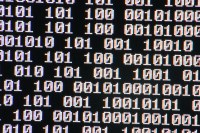 Last week saw an underground fire in Holborn, London, lead to the cancellation of a number of West End shows, costing theatres thousands in lost revenue.
Last week saw an underground fire in Holborn, London, lead to the cancellation of a number of West End shows, costing theatres thousands in lost revenue.
More than 1,900 homes and businesses were left without electricity when the power had to be cut for safety reasons, directly affecting around 5,000 people who were forced out of their homes and offices whilst the underground fire was brought under control.
A small number of larger businesses were able to continue functioning because they had suitable contingency plans in place to cover precisely this type of eventuality. These were the ones that had back-up generators to ensure a continuity of electricity supply which enabled them to continue their activities whilst all around ground to a halt.
 So what provisions have you made for business continuity in the event of an incident that leads to you having to vacate your offices?
So what provisions have you made for business continuity in the event of an incident that leads to you having to vacate your offices?
Remember, this fire, although disruptive, was not classed as a “major” incident and similar issues could happen almost anywhere, at any time. Would your business cope, could it survive should you have to be evacuated, without warning.
What would be the impact on your business if you couldn’t access your office for hours, days or even weeks?
How do you manage the data and documents that are critical to the survival of your business?
Would your business be able to move seamlessly to a different location, would your key staff be able to work from home or elsewhere?
How do you manage and store the documents that are essential to the running of your business? Are they stored on your laptop/PC, on a server, back-up, in the cloud or a USB stick?
Are your clients and business contacts in a Customer Relationship Management application, on a spreadsheet, on your phone or in your head?
How about your financial records, are they saved in Excel or a dedicated software application?
 There are many ways to store and manage your essential data, you just have to be sure that you can access the business critical information from a location away from your office.
There are many ways to store and manage your essential data, you just have to be sure that you can access the business critical information from a location away from your office.
Companies most reliant on data may have back-up locations, complete with computers and data connectivity that they can move key personnel to, ensuring that service and continuity continues with the shortest of interruptions.
Smaller businesses might have file servers storing their data attached to their network with back-up devices regularly creating copies with the back-ups being taken off-site.
Micro-businesses and sole traders could make effective use external hard-drives, whether attached by USB or shared on a network, automatically cloned to one of the numerous, and inexpensive, cloud data services.
Remember, it’s too late to do anything about business resilience once an incident has started.
